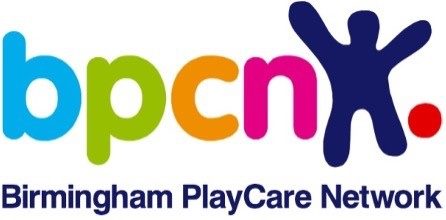Ofsted has produced the Early Years Inspection Myth Buster document 2017. The publication has been created to confirm the facts about its early years inspections and to dispel those myths that can sometimes result in unnecessary workloads for registered child carers. It should be read alongside the early years inspection handbook.
The aim of the Myth Buster is to expose misconceptions and highlight specific practices that are not required by Ofted. This will enable Oftsed to make the inspection process as clear and straightforward as possible.
Myth
Ofsted cannot carry out inspections without any notice.
Fact
Ofsted can carry out inspections without notice. No notice inspections normally, but not exclusively, take place when someone has raised concerns about a setting.
Paperwork
Myth
Ofsted wants to see as much paperwork as possible. Paperwork should be stored in a folder marked ‘Ofsted’.
Fact
Ofsted does not want to see a particular amount or type of paperwork during an inspection. Settings should use whatever approach to paperwork that suits them and are free to file it however they like. Each inspection is unique and inspectors will only ask to see evidence they consider appropriate to that individual setting, usually determined by their observations of teaching and learning. The paperwork most often requested is listed on pages 10 and 11 of the Early years inspection handbook, but it is unlikely that an inspector will want to see all of these documents at every inspection.
Myth
Ofsted prefers to see paper assessments rather than those recorded electronically.
Fact
There is no prescribed way of conducting or recording assessments, as long as it is effective and helps children’s learning, development and progress.
Myth
Ofsted expects leaders to complete a written self-evaluation form (SEF).
Fact
Childcare providers do not need to produce a self-evaluation form, but managers and staff should be able to discuss the setting with the inspector. Inspectors will ask staff about the quality of care and activities they provide, and how well the setting is meeting the learning needs of all children.
During inspection
Myth
During an inspection, Ofsted expects the manager to be available at all times to speak with the inspector.
Fact
Ofsted does not expect managers to be immediately available to speak with the inspector. Inspectors want to see settings operating as they would on any other day, and they will work around normal timetables. Meetings with managers will take place at a mutually convenient time during the inspection.
Myth
Ofsted inspectors may consider a cup of tea/coffee or biscuits as bribery. Or, they may expect a cup of tea/coffee even when a setting has a ‘no hot drinks’ policy.
Fact
Inspectors follow a strict code of conduct and all inspections are carried out without bias, regardless of any refreshments offered. Staff can offer inspectors hot drinks if that is their normal visitor protocol. If a setting has a ‘no hot drinks’ policy, inspectors will not expect the rules to be broken on their account.
Grading and feedback
Myth
Only managers can attend the feedback session at the end of an inspection.
Fact
It is not true that inspectors will only give feedback to managers. The feedback session is confidential until the final report is published, but other staff can be included where it is feasible.
Myth
Ofsted will never give a higher overall judgement than the grade a provider has awarded itself in its self-evaluation form (SEF).
Fact
Completing self-evaluation forms are not compulsory, but where they are made available, they will not determine Ofsted’s overall judgement of the setting. With or without a SEF, inspectors will consider how well the setting understands what it is doing effectively, and how it can maintain or improve standards
Myth
A childcare setting cannot achieve a judgement more than one grade above its previous inspection outcome.
Fact
A setting can improve by more than one grade. If Ofsted finds during the inspection that a setting has improved by more than one grade, the inspector will judge it accordingly.
Complaints
Myth
Making a complaint about an inspection will go against a childcare setting the next time it is inspected.
Fact
Ofsted does not take into account any past complaints lodged by a setting when making inspection judgements. Inspectors act fairly and without bias at all times, and their judgments are based solely on evidence. Inspection reports are also quality assured by other inspectors before they are finalised, to confirm that judgements are firmly supported by evidence.
